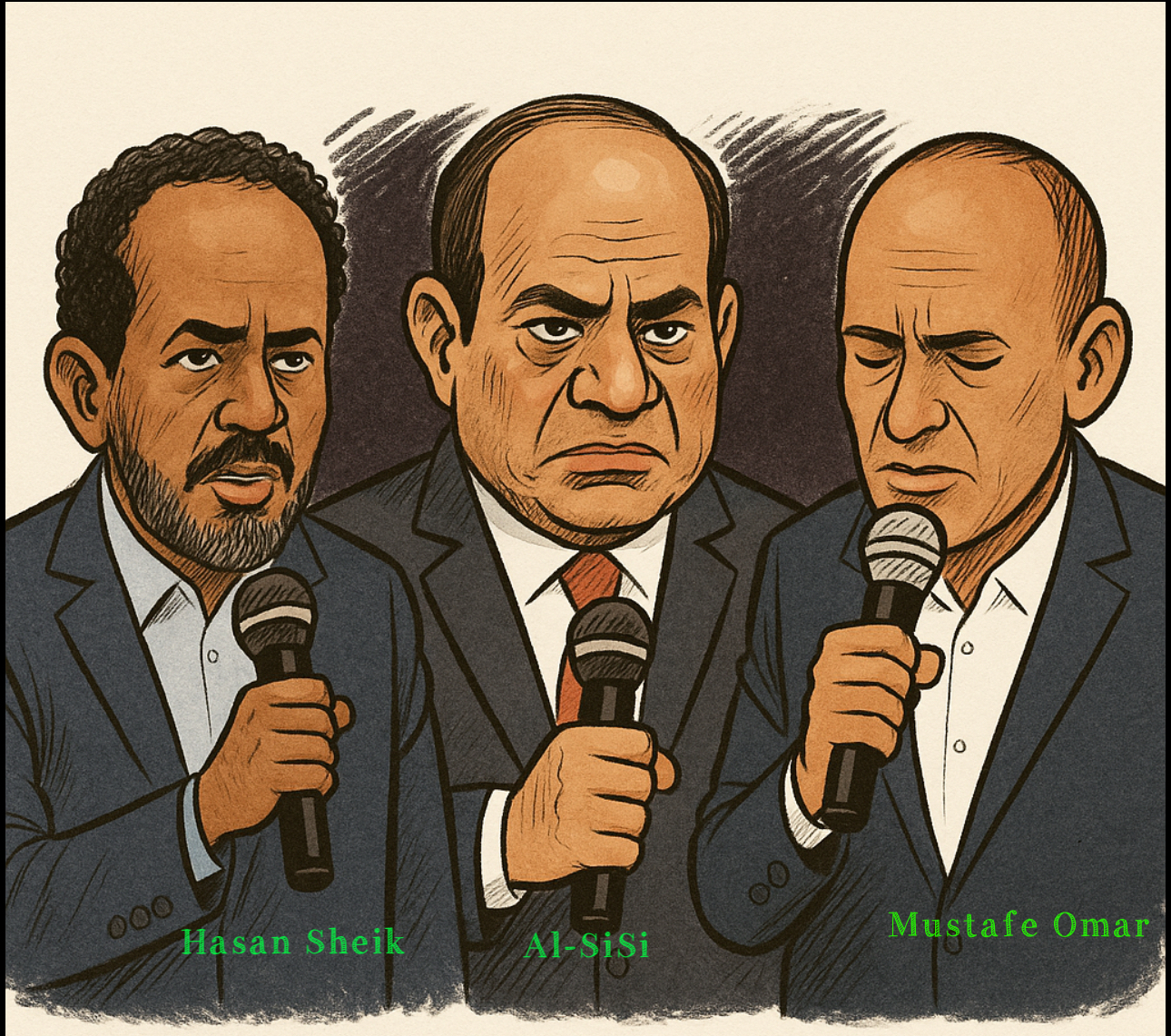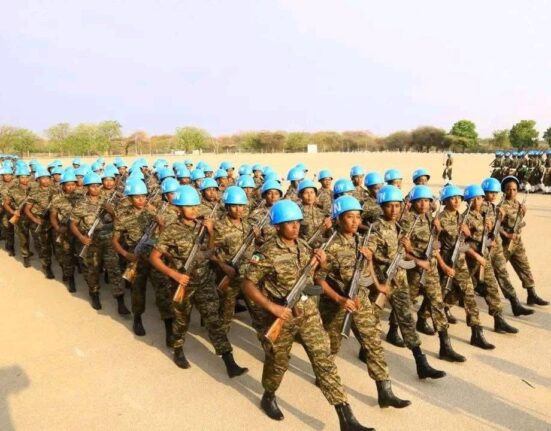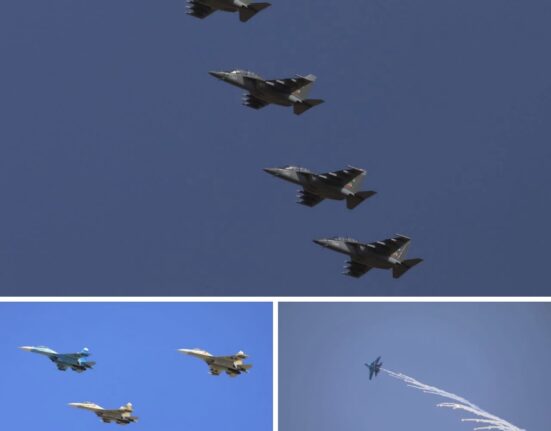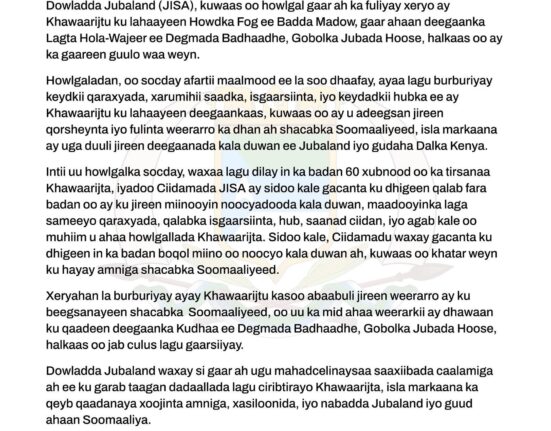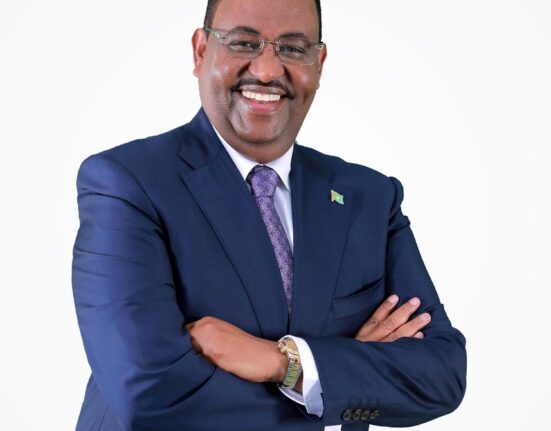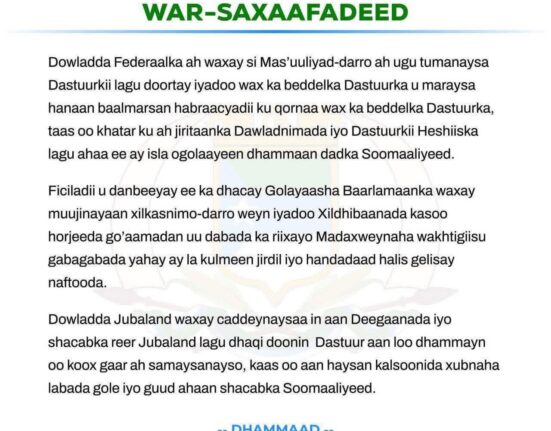The geopolitical dynamics of the Horn of Africa are being reshaped by new alliances, strategic calculations, and competitive interests surrounding natural resources, water politics, and regional influence. In this context, the trilateral relationship involving Villa Somalia (the Presidential Palace of Somalia), Villa Jigjiga (seat of the Somali Regional Government in Ethiopia), and Egypt, particularly regarding the Grand Ethiopian Renaissance Dam (GERD), Ogaden oil exploration, and the Somali Region’s political alignment, is drawing growing scrutiny. This report provides a professional analysis of the emerging patterns and strategic implications of these relationships and raises concerns over potential efforts to destabilize Ethiopia.
- GERD Completion and Egypt’s Strategic Calculations
Egypt’s long-standing opposition to Ethiopia’s Grand Ethiopian Renaissance Dam (GERD) stems from its existential reliance on the Nile waters. Despite Ethiopia nearing full operational capacity of the dam, Egypt continues to exert regional and international pressure to limit GERD’s strategic use. Egypt’s geopolitical outreach increasingly includes the Horn of Africa, with Somalia becoming a critical entry point.
- Villa Somalia, under successive administrations including that of Prime Minister Hamse Abdi Barre, has intelligence reports and diplomatic observations suggest deeper Egyptian engagement in Mogadishu’s strategic planning.
- Egypt is suspected of fostering informal alliances in regions like Somali Regional State (SRS), particularly in Ogaden, to undermine Ethiopia’s domestic unity and leverage its geopolitical influence.
- Ogaden Oil Exploration and the Strategic Resource Factor
The Ogaden Basin, rich in natural gas and oil reserves, represents one of Ethiopia’s most valuable untapped assets. Exploration efforts led by Chinese and Emirati firms have drawn regional and international attention.
- Egypt views the success of Ethiopia’s energy independence — both through GERD and Ogaden’s natural resources — as a direct threat to its Nile-based hydro-hegemony.
- There is growing suspicion that Villa Somalia, in coordination with Egyptian intelligence, seeks to build informal networks within Ogaden to stir dissent or influence local leaders toward regional autonomy, potentially disrupting national cohesion.
- Somalia’s Influence and Villa Jigjiga’s Exposure
Under President Mustafe Omar, Villa Jigjiga has positioned itself as a cooperative regional state within Ethiopia’s federal framework. However, recent developments suggest a quiet but growing influence of Villa Somalia over Somali elites in Ethiopia, particularly through clan networks, media outreach, and elite-level dialogues.
- Mustafe Omar’s personal relationship with Somali Prime Minister Hamse Abdi Barre is cordial and politically active. The two leaders have reportedly engaged in cross-border collaboration under the guise of cultural and economic cooperation.
- While such relationships are natural in a trans-border Somali identity context, there are indications of political alignment that favor Somalia’s national interest over Ethiopia’s federal integrity.
- The dual loyalties of some Somali political actors in Ethiopia — simultaneously engaging Villa Somalia while holding office under Ethiopia’s federal government — presents a vulnerability that external actors like Egypt can exploit.
- Mustafe Omar’s Ambiguous Position
President Mustafe Omar has enjoyed both political support and criticism within Ethiopia. While hailed for bringing relative stability to the Somali Region, his strategic alignment remains ambiguous.
- His silence or neutrality on key national security concerns — including Egypt’s interference in Nile politics or Somalia’s alliance-building with Cairo — raises questions about his commitment to national priorities.
- Analysts observe that his close relationship with Hamse Abdi Barre, who is seen by some as aligning Somalia with Egyptian foreign policy objectives, could compromise Ethiopia’s internal security posture in the eastern corridor.
- The political space in the Somali Region under Mustafe Omar has reportedly grown more open to foreign influence, with unchecked cross-border engagements and informal linkages that may serve agendas contrary to Ethiopia’s sovereignty.
Conclusion
The trilateral interaction between Villa Somalia, Villa Jigjiga, and Egypt is not a casual geopolitical occurrence, but rather a strategically calculated convergence of interests. Egypt, concerned about GERD and Ethiopia’s growing independence, seeks allies within Ethiopia’s periphery. Somalia, leveraging cultural and ethnic ties, acts as a conduit. Villa Jigjiga — under Mustafe Omar — finds itself at the center of this geopolitical triangle.
The Ethiopian government must reassess the internal alignment of regional actors, particularly in the Somali Region, and enhance oversight over cross-border political engagements. Furthermore, a clear policy on foreign influence — especially from Egypt and Somalia — is necessary to protect national unity, energy independence, and territorial integrity.
Recommendations:
- Federal Intelligence Coordination: Strengthen inter-agency intelligence cooperation to monitor foreign influence in the Somali Region.
- Foreign Policy Clarity: Demand transparency from regional leaders on external engagements with foreign governments, particularly Egypt and Somalia.
- Civic Empowerment: Support civil society and youth groups in Ogaden to resist foreign-influenced narratives and promote federal cohesion.
- Resource Sovereignty: Accelerate and protect the development of the Ogaden oil and gas sector under strong federal oversight.
By. Hamse Kalif
Political Analyst and social activist


